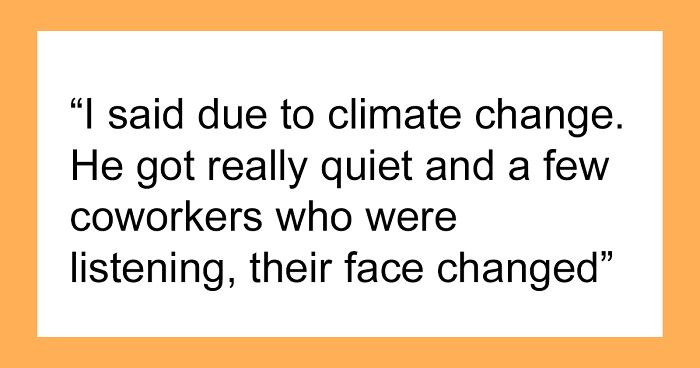
A Canadian Gets Sent To HR At An American Job For Believing Climate Change Is Real
Interview With ExpertWorkplaces, however modern they are, have a certain etiquette. You have to dress a certain way, act a certain way, and talk about certain things with care. Politics, religion, and medical history are just some of the things experts advise you to steer away from when chatting with your coworkers. Perhaps even when you’re not in the office.
And where do you think climate change fits into as a topic? Because this person got reprimanded by HR for telling their coworker that climate change is real during a casual team meet-up. First thinking that it must be the difference between Canada and the USA, the employee started thinking that such policies might be a tad ridiculous. Confused by the whole ordeal, the person decided to check with the Internet, asking whether that was normal.
Bored Panda sought the expertise of Louise Carnachan, an organization development consultant and author of Work Jerks: How to Cope with Difficult Bosses and Colleagues, which recently placed second in two categories for the BookFest Awards. She was kind enough to tell us more about how to navigate conversations with work colleagues. Read her expert insights below!
More info: Louise Carnachan | LinkedIn | Facebook
It can sometimes be tricky to navigate which conversation topics are appropriate with coworkers
Image credits: charlesdeluvio / unsplash (not the actual photo)
This employee, for example, had to go to sensitivity training after bringing up climate change during a team get-together
Image credits: Fábio Alvess / unsplash (not the actual photo)
Image credits: Surface / unsplash (not the actual photo)
Image credits: anon
Navigating conversations with colleagues is like navigating a field of mines
Upon reading this story, it might seem that conversation topics that seemed ‘safe’ before might no longer be so. Workplace relationship coach Louise Carnachan agrees that it’s becoming more and more difficult to avoid landmines when simply conversing with your colleagues.
“We have a plethora of alternate facts these days, not just about science,” she says. “The weather used to be our go-to for uncontroversial conversation, so it’s sad that it’s become conflated with political and religious overtones.” The situation described here could’ve happened to anyone, Carnachan points out.
Although no big altercation happened between the colleagues, at least one of them probably felt the breaking of trust. “Once you feel burned by someone, it’s hard to want to interact with them in the future,” the work relationship expert notes.
Doubting and asking questions is a normal part of conversations. “In an ideal world, if you pick up cues that communication has gone awry, you can switch to listener mode and see what you can learn,” Carnachan tells Bored Panda.
“Phrases like, ‘Tell me more about that,’ ‘I’m interested to learn what led you to those conclusions,’ or ‘I’d like to understand better’ [open] up the possibility for the speaker to feel heard (and you get an inside track to that thinking).”
However, does that really apply when the topic is something like climate change? “It can’t be done to debate facts or change minds. It’s just [to] hear someone out,” Carnachan says. “Would being heard [have] kept whomever it was from going to HR? Maybe, maybe not.”
We should be more patient and more willing to listen to each other
Image credits: Dylan Gillis / unsplash (not the actual photo)
Stubbornness and an unwillingness to hear another person out are hardly the ways to move forward. “It gets increasingly difficult to find non-controversial topics, so we might as well tune up our listening skills,” Carnachan emphasizes. “Will there be mutuality, and [will] the other party care about what you think and why?”
“Maybe not at the beginning, but over time, being a good role model might have an impact. With so much said about ‘the great divide,’ if we don’t start hearing each other out, we don’t have a chance of bridging it.”
In some industries, companies might have norms about specific religions or political affiliations. Unfortunately, that remains unclear in this case. Carnachan speculates that “the report may not have been an objective statement of what happened, rather an accusation that someone’s religious and political views were attacked.”
“[An] attack is very different from a difference of perspective,” she points out. “It doesn’t sound like HR had any conversation with [OP], which means there was only one side. Before prescribing sensitivity training, the story should have been investigated and common sense applied.”
Conversational etiquette for casual get-togethers between coworkers is the same as for in the office
One important element in this story is that all this happened outside of work. The employee describes how he came to Texas for a team get-together. But does the place and time matter when it comes to conversations with colleagues?
“The conversational etiquette is pretty much the same at the office or outside of it,” Louise Carnachan tells us. “The thing to remember is there are no ‘safe’ socials with colleagues. People pay attention to what is said and done, they make judgments, and they gossip about what happened. Sometimes, they ‘tattle’ to others, like the boss or HR.”
“When alcohol is involved, the opportunity for poor decision-making and outsized reactions are exponentially increased. Watch what you say, do, and how much you drink. Your norms with a select few good friends from work may be different, but be attentive if it’s a larger group or with people you don’t know well,” Carnachan gives some advice.
Naturally, some topics should also be off-the-table. Questions that put the other person on the spot, for example, ‘How come you got the promotion?’ or ‘Why don’t you have kids?’, are not appropriate.
“Basically anything you wouldn’t talk about at a family gathering where your grandparents are in attendance should probably be eliminated,” Carnachan gives a basic point of reference.
Most people found this situation borderline ridiculous, and here are the reactions
Poll Question
Thanks! Check out the results:
I once saw someone claiming in all seriousness that climate change is a conspiracy to turn everyone into socialists. Don't even ask me how that's supposed to work.
Lmao! Well about that... kinda is what happened to this here former conservative now socialist 🤣 I mean the bigger factors were getting a college education and traveling around the world, but learning about climate change science definitely made me anti-capitalist! 😎
Load More Replies...I have never heard of this, I've never worked in a place in the US where climate change was controversial, but political views aren't protected characteristics, so the HR program isn't one that's recognised by general HR industry standards in the US. Managers can encourage people away from political topics, but unless you're civil service, they can't actually ask you to stop, or send you to training.
I've had to deal with this multiple times during my career especially in conversations relating to religion. I've had bosses and co-workers who think nothing of starting conversations but the moment you offer facts instead of faith, it turns into "I'm being oppressed for my beliefs"...well, no you're not and you started the conversation in the first place. Besides if your faith is as strong as you say, you shouldn't worry about me mucking around in your head with the truth.
Hear me out: If the world is flat and the climate change is happening.... a blanket is also flat and if you flip it, if its too warm for you.... it is cold again. So we have to flip the earth! /s
The deniers should be the ones getting emails from HR. The world needed to become more sensitive to others than it was, but some people have gone way too far. I don't want to live in a world where no-one can express opinions without it being a problem. One of the wisest things said to me, back in the mid-80s when we were discussing nuclear disarmament, was "That's your opinion, and you're entitled to it". That's called mature debate, and not a cause for retraining.
Since we are already here with stupid misinformation, how about we all open the windows so the coolers and ventilators can fight the climate change? I stole that one from reddit, still can't believe some people think like that.
I once saw someone claiming in all seriousness that climate change is a conspiracy to turn everyone into socialists. Don't even ask me how that's supposed to work.
Lmao! Well about that... kinda is what happened to this here former conservative now socialist 🤣 I mean the bigger factors were getting a college education and traveling around the world, but learning about climate change science definitely made me anti-capitalist! 😎
Load More Replies...I have never heard of this, I've never worked in a place in the US where climate change was controversial, but political views aren't protected characteristics, so the HR program isn't one that's recognised by general HR industry standards in the US. Managers can encourage people away from political topics, but unless you're civil service, they can't actually ask you to stop, or send you to training.
I've had to deal with this multiple times during my career especially in conversations relating to religion. I've had bosses and co-workers who think nothing of starting conversations but the moment you offer facts instead of faith, it turns into "I'm being oppressed for my beliefs"...well, no you're not and you started the conversation in the first place. Besides if your faith is as strong as you say, you shouldn't worry about me mucking around in your head with the truth.
Hear me out: If the world is flat and the climate change is happening.... a blanket is also flat and if you flip it, if its too warm for you.... it is cold again. So we have to flip the earth! /s
The deniers should be the ones getting emails from HR. The world needed to become more sensitive to others than it was, but some people have gone way too far. I don't want to live in a world where no-one can express opinions without it being a problem. One of the wisest things said to me, back in the mid-80s when we were discussing nuclear disarmament, was "That's your opinion, and you're entitled to it". That's called mature debate, and not a cause for retraining.
Since we are already here with stupid misinformation, how about we all open the windows so the coolers and ventilators can fight the climate change? I stole that one from reddit, still can't believe some people think like that.

 Dark Mode
Dark Mode 

 No fees, cancel anytime
No fees, cancel anytime 







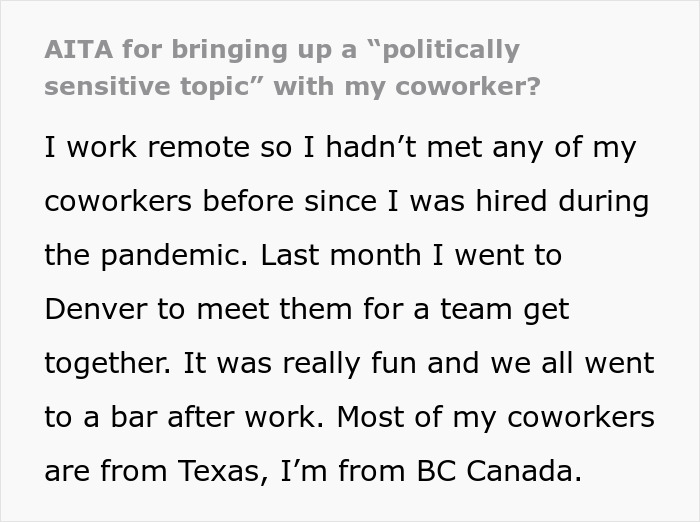
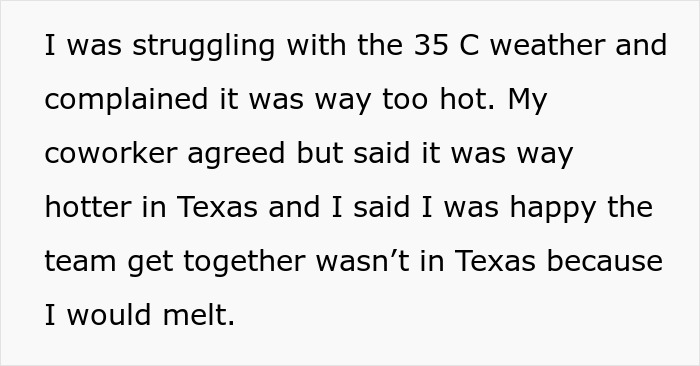


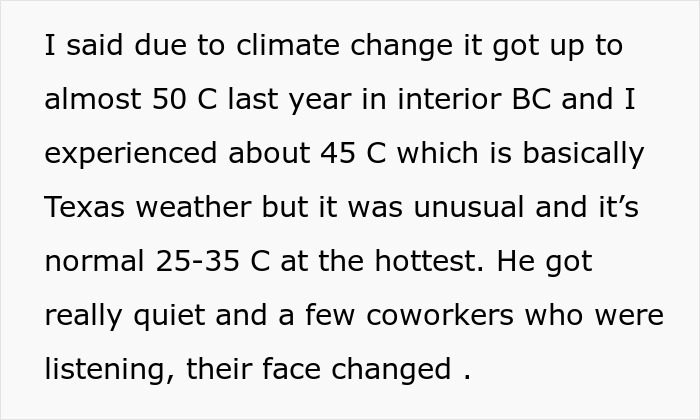
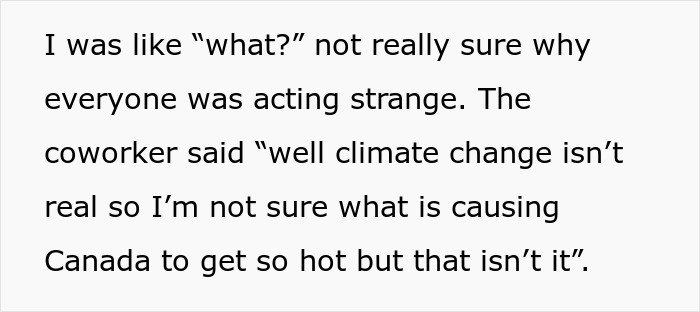
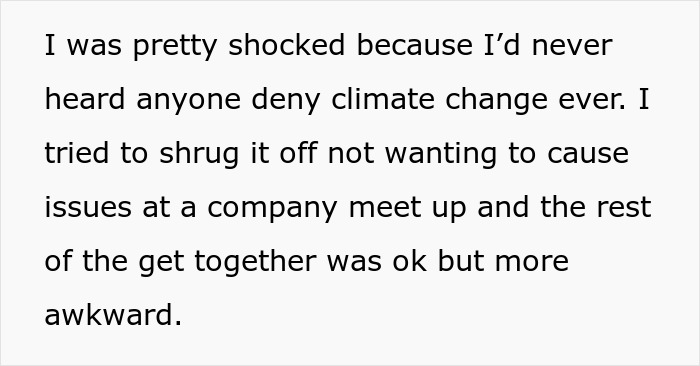
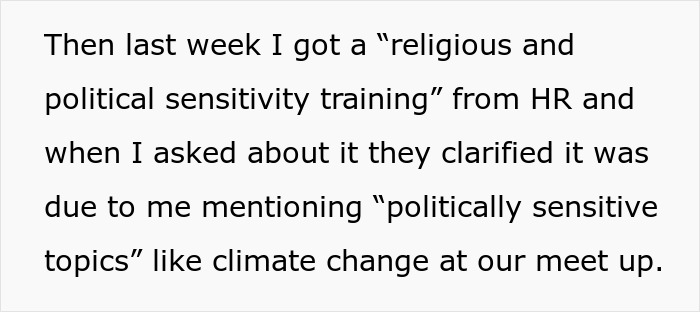

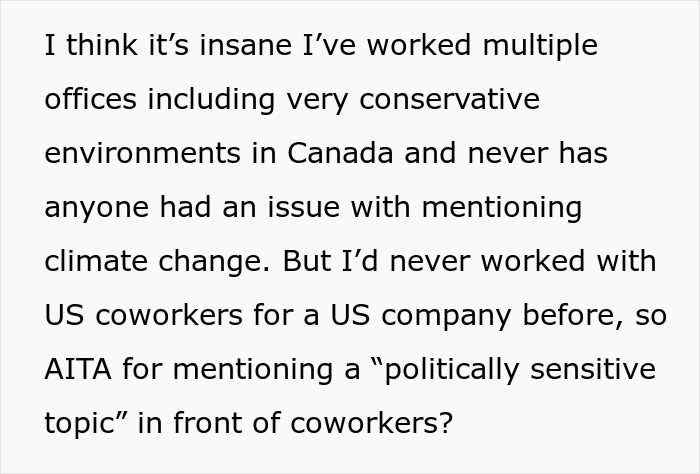





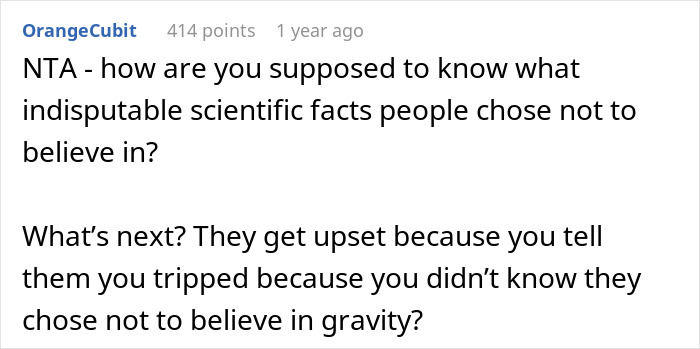

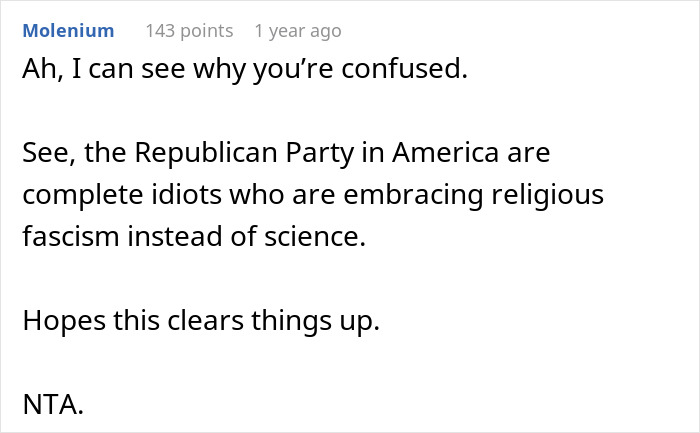


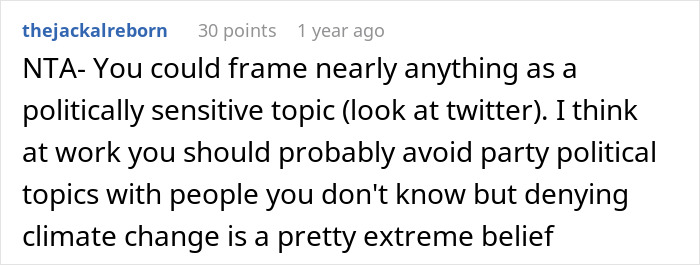
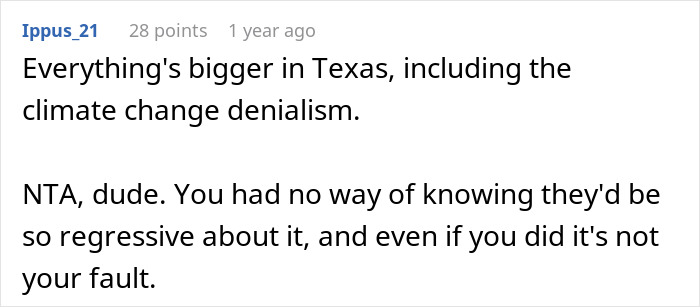
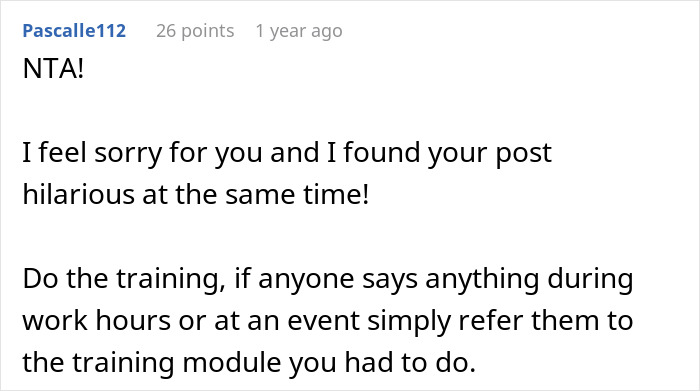
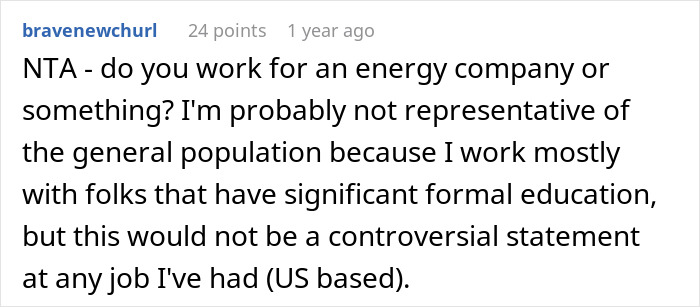
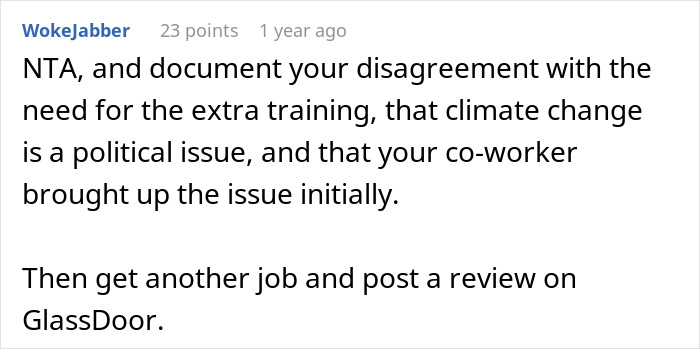


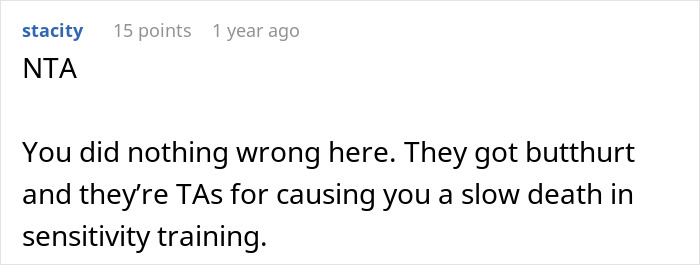
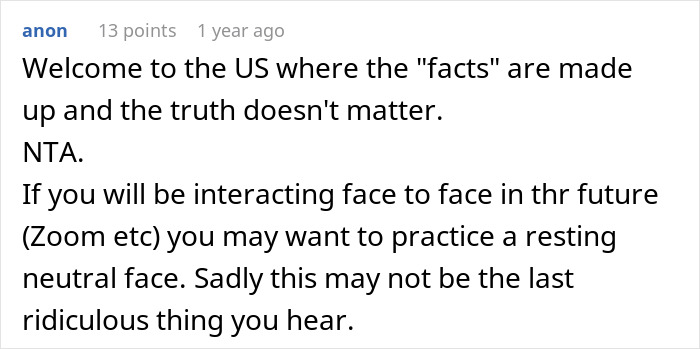










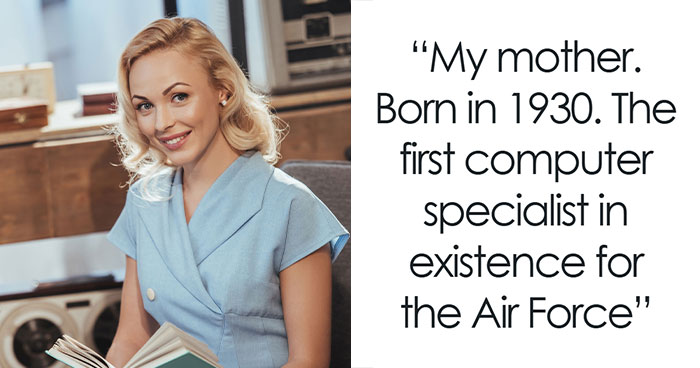


































19
49